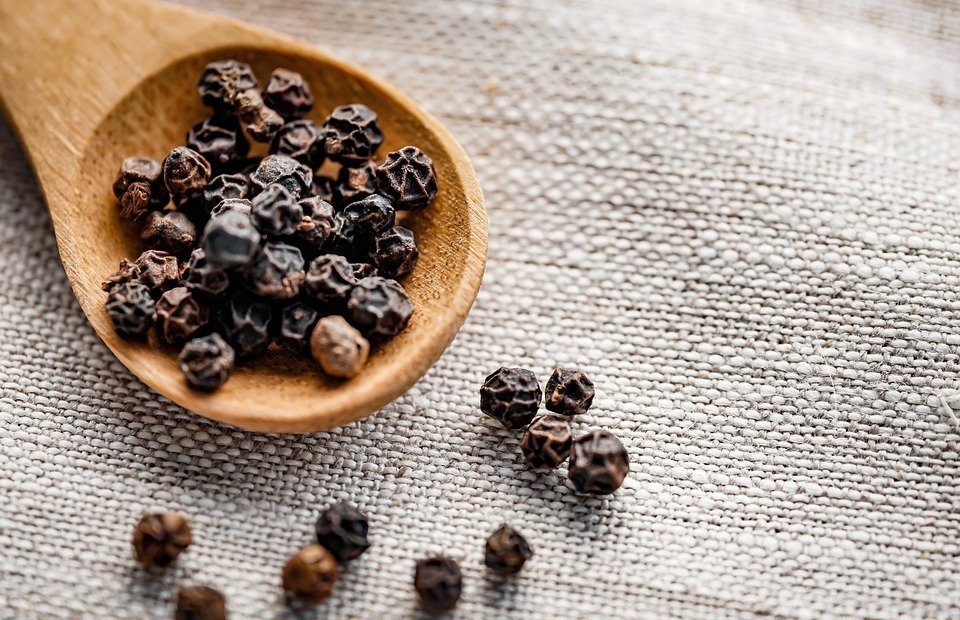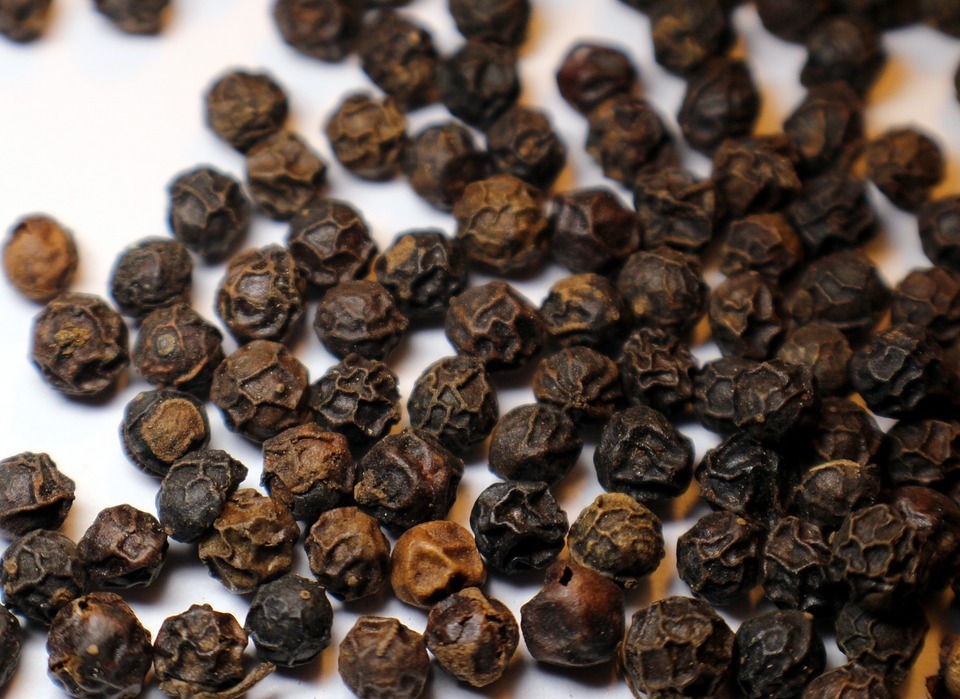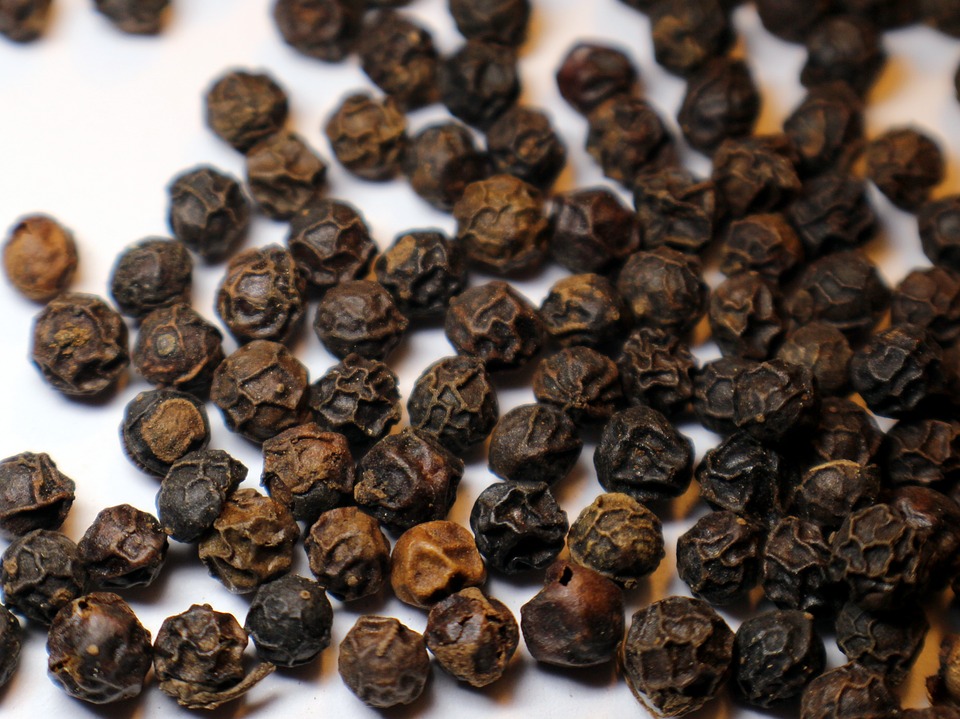You're whipping up a delicious meal, the aroma of freshly ground black pepper fills the air, and you can't help but wonder, "Can my dog have a little bit?" It's a question I've found myself asking countless times, especially when those enticing peppercorns are within my furry companion's reach. Now, while I'm not a vet, I've spent years learning about dog health, and I've certainly learned a thing or two about what's good for our canine friends and what's not. So, let's dive into the world of black pepper and dogs, shall we?
Part 1: Understanding Black Pepper

A Spice with a Rich History
Black pepper, the "king of spices," has been a culinary staple since ancient times. Imagine, for a moment, those bustling marketplaces of ancient Rome, filled with the vibrant colours and intoxicating aromas of exotic spices. Black pepper, with its sharp, pungent flavour, was a prized commodity, a symbol of wealth and luxury. Today, it's found in kitchens around the world, adding a kick and depth to countless dishes, from curries and stews to simple salads and pasta. But when it comes to our canine companions, it's a different story.
Black Pepper: From Vine to Table
Black pepper is actually derived from the dried berries of the pepper vine, Piper nigrum. These berries, when picked green and dried, develop their characteristic black colour and powerful flavour. As the berries mature, they become darker and the flavour mellows out. So, you've got your black peppercorns, which are the whole berries, ground pepper, and even white pepper, which is made from the same berries but with the outer layer removed.
The Chemistry of Black Pepper
Black pepper's distinctive flavour and aroma come from a compound called piperine. Piperine is what gives pepper its heat, and it's also responsible for some of its medicinal properties. While humans have been enjoying the benefits of pepper for centuries, we've got to remember that our canine companions have a different physiology and might not tolerate those same properties in the same way.
Part 2: The Canine Perspective

A Little Bit Can Go a Long Way
Now, here's the thing: black pepper isn't exactly toxic to dogs, but it's not exactly good for them either. A tiny sprinkle on their food, like a whisper of flavour, probably won't cause any major issues. But, remember, dogs have sensitive digestive systems, and their sense of taste is much stronger than ours. What might be a subtle addition for us could be a powerful blast of flavour for them. And let's face it, we've all got those mischievous pups who might just try to snatch a whole peppercorn or two.
Part 3: The Potential Risks of Pepper for Dogs

Gastrointestinal Upset: Tummy Troubles
The most common problem with dogs eating black pepper is gastrointestinal upset. Think tummy rumbles, vomiting, diarrhoea, and bloating. These symptoms are usually only a concern if the dog eats a significant amount, but it's still something to keep in mind. Imagine eating a whole plate of jalapenos – not a pleasant experience for anyone, human or canine.
Respiratory Issues: Coughing and Wheezing
Some dogs may experience respiratory issues if they eat a lot of pepper. This can include coughing, wheezing, and difficulty breathing. While it's not likely to be a serious problem, it's important to pay attention to any unusual breathing patterns. If your dog seems to be struggling to breathe, it's best to seek veterinary attention.
Sensitivity Concerns: Dogs are Individuals
Just like humans, some dogs might have a sensitivity to pepper. This could mean that even a small amount can cause them to react. If you notice any of the symptoms mentioned above after giving your dog a tiny taste, it's best to stop and play it safe. Your dog's well-being comes first.
Part 4: My Personal Experiences with Buster
Now, I've got to admit, my own dog, a mischievous little terrier named Buster, has a bit of a sweet tooth. One time, he managed to snatch a whole peppercorn off the counter. I swear, he's got eyes in the back of his head! Thankfully, he didn't seem too bothered by it, but it definitely gave me a fright. From that day on, I'm extra careful about keeping any spices out of his reach. It's always better to be safe than sorry, especially with a curious pup like Buster.
Part 5: What to Do If Your Dog Eats Black Pepper
Stay Calm and Assess the Situation
If you think your dog has eaten black pepper, the first thing to do is stay calm. Don't panic! Take a deep breath and assess the situation. How much pepper did they eat? What are their symptoms? If they seem fine, they'll likely be alright. But, it's always better to err on the side of caution.
Monitor for Symptoms: Watch and Wait
Keep a close eye on your dog for any signs of gastrointestinal upset or respiratory issues. These symptoms might not appear immediately, so be sure to watch them for the next few hours. If you notice any changes in their behavior or health, it's time to take action.
Call Your Vet: Expert Advice
If your dog is showing any serious symptoms, or if you're unsure about what to do, it's always best to call your vet. They can assess the situation and provide the best advice for your furry friend. They might recommend inducing vomiting, depending on the amount of pepper ingested, or suggest other measures to help your dog.
Part 6: Preventing Pepper Mishaps
Keep Spices Out of Reach: A Safe Environment
The best way to prevent your dog from eating black pepper is to keep it out of their reach. Store spices in airtight containers, high up on shelves, or in cabinets with childproof latches. Remember, dogs are curious and sometimes mischievous, so it's always better to be safe than sorry.
Spice-Free Cooking Zones: Safety First
Whenever you're cooking with spices, especially those that might be harmful to dogs, try to designate a spice-free cooking zone. This could mean having a dedicated counter or area where you can prep food without the risk of your dog getting into anything they shouldn't.
Training and Supervision: Building Good Habits
Training your dog to leave things alone is crucial for preventing unwanted spice consumption. Use positive reinforcement techniques, rewarding your dog for good behavior around food and spices. And, of course, always supervise your dog when you're cooking or eating.
Part 7: Alternatives to Black Pepper
Dog-Friendly Spices: A Flavourful World
If you're looking to add a bit of flavour to your dog's food, there are plenty of dog-friendly spices out there. Cinnamon, ginger, and turmeric are all considered safe for dogs in small amounts. These spices can add a delightful aroma and flavour to their meals without any harmful side effects. Always consult with your vet before introducing any new spice to your dog's diet, just to be sure.
Fresh Herbs: A Natural Touch
Fresh herbs like parsley, basil, and rosemary can also be a great addition to your dog's food. These herbs are not only tasty but also offer potential health benefits. Just be sure to use them in moderation and avoid any herbs that are toxic to dogs, such as onions and garlic.
Part 8: The Bottom Line: Spice with Caution
So, can dogs eat black pepper? The short answer is yes, but it's not recommended. A tiny sprinkle on their food probably won't hurt, but it's best to err on the side of caution and avoid it altogether. Keep those spices out of reach, and if your dog does happen to eat some, stay calm, monitor them, and call your vet if necessary. Your furry friend will thank you for it!
FAQs: Common Questions and Answers
Q: Is it dangerous for my dog to eat black pepper?
While a small amount might not cause significant harm, black pepper can cause gastrointestinal upset and respiratory issues in dogs. It's best to avoid it altogether.
Q: What are the symptoms of pepper poisoning in dogs?
Symptoms include vomiting, diarrhoea, bloating, coughing, wheezing, and difficulty breathing. If you notice any of these symptoms, call your vet immediately.
Q: What should I do if my dog eats black pepper?
Stay calm, monitor your dog for symptoms, and call your vet if you're concerned. They can provide the best advice for your dog's situation.
Q: Are there any dog-friendly spices?
Yes, there are! Cinnamon, ginger, and turmeric are generally considered safe for dogs in small amounts. Always consult your vet before adding any new spice to your dog's diet.
Q: How can I prevent my dog from eating spices?
Keep spices stored in airtight containers, high up on shelves, or in cabinets with childproof latches. Always be mindful of what you're cooking and ensure your dog can't reach any potentially harmful ingredients.
Everyone is watching
-

Can Dogs Eat Bananas? A Guide to Safe Treats
DOGS & PUPPIESThis comprehensive guide will delve into the world of canine nutrition, focusing on the popular question: can ...
-

Can Dogs Eat Oranges? (Is It Safe or Toxic?)
DOGS & PUPPIESThis article delves into the question of whether dogs can safely consume oranges. We'll explore the nutrition...
-

Can Dogs Eat Grapes? The Shocking Truth About This Fruit
DOGS & PUPPIESThis article delves into the controversial topic of grapes and dogs, exploring the potential dangers associate...
-

Why Do Dogs Eat Poop? Understanding Coprophagia in Dogs
DOGS & PUPPIESThis article delves into the perplexing phenomenon of coprophagia, the act of eating faeces, in dogs. We explo...
-

Can Dogs Eat Shrimp? A Guide to Safety and Risks
DOGS & PUPPIESThis comprehensive guide dives into the world of shrimp and dogs, exploring the potential benefits and risks a...
